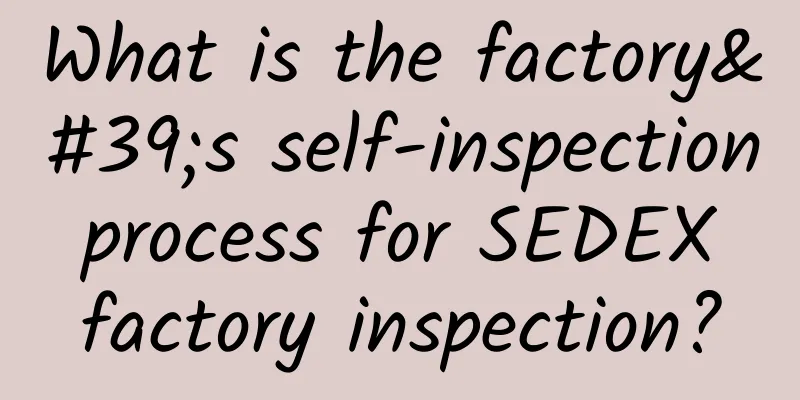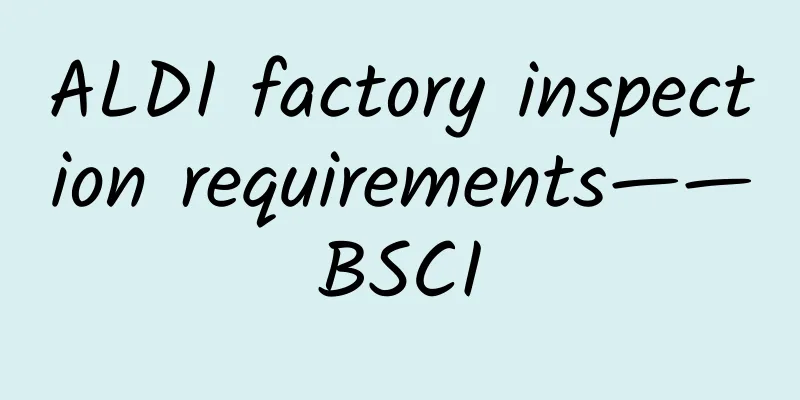Suppliers and subcontractors in BSCI certification

|
Supplier/Sub-supplier Entities in a company’s value chain that provide upstream products or services to the company (e.g., raw material suppliers, ingredient suppliers, semi-finished product suppliers, etc.). Subcontractors The business entity designated by the company to implement the value-added processes for all or part of the assembly process. Interpretation: In BSCI certification, subcontractors and suppliers are crucial to whether a factory can pass BSCI certification. Whether this problem can be solved well directly determines whether it can pass BSCI certification. To clarify this issue, we must first explain it from the following aspects. 1. Definition The definition of supplier is: an entity in the company's value chain. It provides upstream products or services to the company (for example: raw material supplier, component supplier, semi-finished product supplier, etc.). Supplier is an entity in the factory's value chain and its upstream product or service. For example, for a garment factory, its fabric provider is its supplier. In the BSCI glossary, the definition of a subcontractor is: a business entity designated by the company to implement the value-added process of all or part of the assembly process. In many factories that I have come into contact with, some factories complete all processes in their own factories, and these factories do not have any subcontractors. However, in some factories, due to lack of machines or various other reasons, some processes need to be completed with the assistance of other factories, so there is a subcontractor problem. Moreover, this subcontractor is an independent business entity, not a branch of the factory or an entity with other affiliated business relationships. 2. Establish procedures Has the company established and does the company maintain appropriate procedures to recruit subcontractors based on their ability to meet the BSCI social requirements? If yes, please describe. This requires the factory to establish reasonable procedures to require subcontractors to comply with the BSCI Code of Conduct. 3. Supervision and Inspection It is not enough for a factory to simply establish relevant procedures to require its subcontractors to comply with the BSCI code of conduct, because the BSCI certification also requires the factory to form a limited supervision and inspection mechanism for its subcontractors and provide relevant evidence for review. For example, the BSCI certification mentions: Does the company maintain appropriate records of subcontractors commitments to social accountability, including, but not limited to the written commitment to conform to all BSCI social requirements? (Does the company maintain appropriate records of subcontractors' commitments to social accountability, including, but not limited to written commitments to: comply with all BSCI social requirements?) |
<<: I hope there is only one universal verification standard internationally.
>>: BSCI certification related documents and evidence
Recommend
Common fire safety issues and solutions during BSCI factory audits (I) Fire hydrants blocked by cargo
Problem phenomenon: The fire hydrant is blocked b...
How to sell multiple items on eBay?
What are style items? For products that have mult...
How is Qibang International? What services does Qibang International provide?
How about Qibang International? Qibang Internatio...
What are the eBay rules?
In the previous articles, we learned about eBay&#...
eBay's No Duplicate Listing Policy
To ensure that buyers see a wide selection from a...
Application of BRC standards in food
Application of BRC standards in food The BRC stand...
What is Chuangmeng Cross-border? What services does Chuangmeng Cross-border provide?
For newbies who have just entered the cross-borde...
eBay Beginner's Tutorial: Steps to Set Up Vacation Mode
You can put your store on holiday to display a me...
Shenzhen Employee Wage Payment Regulations
(Adopted at the 33rd meeting of the Standing Comm...
How much is the letter of credit fee? A complete analysis of letter of credit fees~
A letter of credit is a written document issued b...
Rubicon Project — online advertising technology company
What is the Rubicon Project? RubiconProject is an...
How is Yiyutong Technology? What functions does Yiyutong Technology service have?
How about Yiyutong Technology? Yiyutong Technolog...
These products on eBay are very likely to infringe copyright. How can we avoid infringement of copyright on eBay?
There have been many news reports about "inf...
Poccupine — Borderless Payment Gateway
What is Poccupine? Poccupine is an international ...
Commonly used reference data for factory inspection
1. Air quality/exhaust system: 1. The air in all ...









